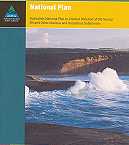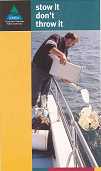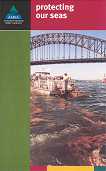|
AMSA Resources
AMSA has many resources and educational material to assist Teachers and Students at all levels to learn more about protecting the marine environment. The Educational Information page on our website has classroom activities, exercises, research, legislation and much more.
Also available is a CD-ROM oil spill clean-up simulation game called Fix-A-Slick and an animated storyboard with sound showing the effects of garbage pollution in the marine environment.
Research and reference materials are also available on the website. For more information on National Plan material visit AMSA's web site at: www.amsa.gov.au/Marine_Environment_Protection/National_Plan/ or choose a link below:
· Dispersants Information
· Environmental and Scientific Coordinators Workshop
· National Plan Oil Spill Response Atlas (OSRA)
· National Plan Reports and Fact Sheets
AMSA Publications
|
Our Publications page at www.amsa.gov.au/Publications/index.asp contains further publications which may be of interest. Below are some of the resource material and publications available on the AMSA website. If you would like copies of the publications mentioned or further information, please email eps@amsa.gov.au
The National Plan - Australia's National Plan to Combat Pollution of the Sea by Oil and Other Noxious and Hazardous Substances.
The National Plan is a national integrated government and industry organisational framework enabling effective response to marine pollution incidents. AMSA manages the National Plan, working with State/Northern Territory governments and the shipping, oil, exploration and chemical industries and emergency services to maximise Australia's marine pollution response capability. |
 |
| |
|
 |
Stow it don't throw it
Until recently, boat users have traditionally dumped their garbage into the sea as a matter of course. Oceans were seen as vast domains in which garbage became invisible because it either decayed or sank.
Today the situation is very different, mainly because we all use so many non-biodegradable products such as plastics. Once thrown into the sea, they are extremely persistent and potentially harmful to humans and marine life. Garbage can be fatal for marine animals such as turtles and whales which mistake plastic bags for jellyfish - a source of food. Garbage also entangles seabirds, seals, turtles and fish, trapping and slowly choking them to death.
Boat users need to plan ways to reduce the amount of garbage onboard. For example, don't use disposable products - use crockery instead of paper cups and plates. |
| Penalties for not complying with the law are up to $260,000 for individuals and $1.3 million for companies. The garbage regulations are based on the International Convention for the Prevention of Pollution from Ships (known as MARPOL 73/78) and apply to all vessels including dinghies, yachts and fishing vessels. |
| |
|
|
Protecting our seas
The protection of the marine environment is the responsibility of everyone. We all must be conscious of the pollution threats to our waterways and oceans and the serious effects that may result.
This brochure provides general information on the legislation and international conventions implemented in Australia to protect the marine environment from ship pollution.
Posters and Stickers
The following posters and stickers are available to promote awareness of the need to save our seas from pollution. If you would like copies, please email eps@amsa.gov.au |
 |
|
|
|